State Legislature: Area legislators hail veterans tax cut bill: They share high, low points of session
Originally published by Pineandlakes Echo Journal
At least four area Republican legislators cited a provision that excludes military retirement pay from state income tax as a highlight of the 2016 legislative session that concluded May 23.
The bill was authored by Rep. Josh Heintzeman, R-Nisswa, in the House and Sen. Paul Gazelka, R-Cass County, in the Senate.
“Probably the greatest accomplishment for me was helping to get passed the military pension exemption,” Gazelka said. “We were in the bottom five for all states for veterans with pensions to retire to and this will take us off of that list – very important.”
Heintzeman agreed. “There’s no question about it – it’s a very significant piece of legislation and I’m really lucky in my first term to work on it,” he said.
“We got half a billion in tax reform or tax relief, as well as the veterans,” Anderson said of legislative accomplishments. “We’ve been pushing this for years – veterans’ pension is exempt from state tax. That’s huge.”
Sen. Carrie Ruud, R-Breezy Point, echoed a sense of pride in the military exemption bill, but fears Gov. Mark Dayton may not sign that bill.
“There are some very, very good things, in both the tax bill and the supplemental spending bill, but the governor hasn’t signed them yet and I am very worried about that,” Ruud said. “One of my first bills as a freshman was the Military Pension Exemption Bill, and that is in that tax bill. That is an incredible accomplishment, and I would be just heartbroken if the governor vetoes that bill.”
Rep. Dale Lueck, R-Aitkin, was pleased to see an economic aid package for the Mille Lacs Lake region was approved.
“This legislation is very important to our area, we fought hard and got it done,” Lueck said in a news release. “While the Senate may have unraveled transportation and bonding at the last minute, this immediate aid for Mille Lacs was badly needed. It shows we can work on a bipartisan basis at the Capitol.”
Low points of the session, Gazelka said, were not providing enough tax relief and not passing a bonding bill.
“I would have liked to have gotten much more tax relief,” he said.
The proposed bonding bill had over $700 million earmarked for roads and bridges.
“Most of it had agreement in the House and Senate. The House passed it with huge bipartisan support,” Gazelka said, noting some Democratic senators wanted light rail to be included in the bill. “As a result it all went down.”
Gazelka is optimistic a bonding bill will pass if a special session is called.
Ruud’s high point and low point came in the same topic, as a cooperative, bipartisan effort on the bonding bill was defeated at the last minute.
“I know people think it was done at the last minute, but we put hours and hours and hours in, and had version after version trying to come to a consensus,” Ruud said. “We did come to a consensus and had a really bipartisan, strong bill – one of the best I have seen – so of course it was really disappointing when the Senate DFL broke the agreement and defeated the bill in the last five minutes of session. I don’t think there was anyone more shocked (than me) that they did that.”
A low point for Anderson was that the state still didn’t get rid of MNsure, Minnesota’s health insurance marketplace.
“MNsure needs to go away,” he said. “We’re throwing more and more money into a broken wheel. There’s no fix for it. Nothing you can do. Just get rid of it. We don’t need to have duplicate system. There’s a federal exchange.”
A highlight for Heintzeman had to do with family rather than specific legislation.
“The biggest highlight for us was how well the fit was for our family,” he said, noting that to have his family with him in St. Paul to go home to at night was key to helping him refocus.
He also considered it a blessing to work on legislation for people of Crow Wing County who feel the same about issues.
“I really loved every minute, honestly,” Heintzeman said of the session.
He did say it’s difficult to hear comments some legislators make that he believes misdirect the public. Some legislators who argue that they haven’t seen information pertaining to a bill are being completely dishonest, he said, noting they are making the argument to create public perception via the media.
“And people really get turned off by that,” he said.
Rep. Tom Anzelc, DFL-Balsam Township, said this most recent legislative session didn’t accomplish the people’s work.
“By and large the main reason we were in St. Paul in the first place was bonding and transportation and to a lesser extent, taxes,” Anzelc said. “This will go down in history as a legislative session where the Legislature fell short of accomplishing its goals. I have urged the governor to call a special session. I urged our leadership to get back to the bargaining table and try to come to an agreement that can be passed in special section.”
Anzelc supported many provisions in the tax bill that was passed to Dayton, but he said a provision favoring big tobacco may result in a veto from the governor.
Likewise, Anzelc said he supported an omnibus bonding and transportation bill, which passed with support from 58 Republican votes and 33 Democratic votes, but the Senate later added the provision providing funding for a rail line in the southwestern suburbs of Minneapolis, likely crossing a line with Republicans who refused to support bills with light rail, metro transit or trains.
With a special session “looming” and bills yet to be signed, Sen. Tom Saxhaug, DFL-Grand Rapids, declined to comment yet on the legislative session.
